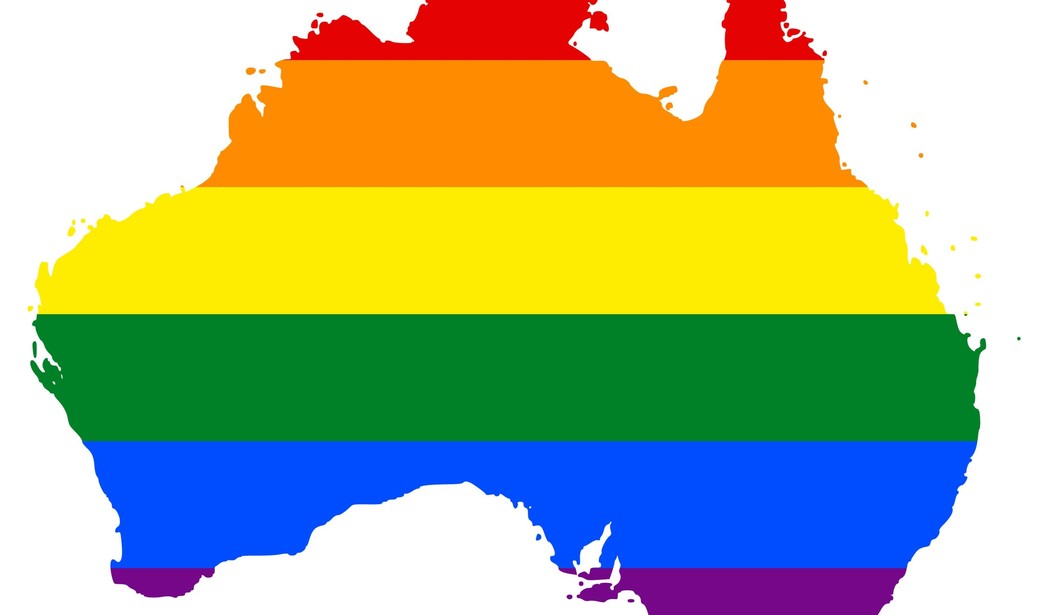On Wednesday, Australian statistician David Kalisch announced the results of a nation-wide survey on same-sex marriage — a strong “yes” vote. Social conservatives warned that such a vote would jeopardize parental rights and religious freedom, and various events have suggested this may be the case.
Out of 12.7 million votes, 61.6 percent (7.8 million people) supported same-sex marriage. Another 38.4 percent (4.9 million people) voted against it. The nearly 13 million voters represented 79.5 percent of the eligible voters.
The Coalition for Marriage, an organization supporting the “no” vote, warned that if Australia legalized same-sex marriage legal change would damage religious freedom down under. The organization accepted the results of the vote, but promised to defend religious freedom, parental rights, and other issues.
“We will now do what we can to guard against restrictions on freedom of speech and freedom of religion, to defend parents’ rights, and to protect Australian kids from being exposed to radical LGBTIQ sex and gender education in the classrooms,” Lyle Shelton, a spokesman for the coalition, said in a statement.
“In their push for same-sex marriage, the ‘yes’ campaign assured Australians that a change in the law would have no consequences for them; it is now time for them to make good on that promise,” Shelton added. He further praised the activists who worked against same-sex marriage.
“Their efforts have not been wasted,” Shelton insisted. “Thanks to them, millions of Australians spoke up to defend freedoms and will not allow them to be taken away. Those who seek to deceive parents or deny them information about what their kids learn in school will find themselves called to account my millions of Australian mums and dads.”
The Coalition for Marriage warned that if same-sex marriage became legal in Australia, religious freedom, free speech, and parental rights would take a hit. Sadly, cultural trends suggested this might indeed be the case.
Last week, anticipating the results of the survey, West Australian LGBT activists petitioned the government to crack down on an “anti-gay loophole” allowing private schools freedom over teacher employment and student status when it comes to LGBT issues.
In recent years, the Safe Schools program has expanded across Australia. The Coalition for Marriage argued that this program exposes “children to gender ideology and explicit sexual material in the name of ‘anti-bullying.'”
Among other resources, Safe Schools uses the All of Us booklet, which presents an “interactive exercise” called “stepping out.” This exercise encourages students to consider what it would be like to be attracted to someone of the same sex.
When it comes to free speech and religious freedom issues, LGBT people in Australia said they would oppose any legal provision allowing churches, ministers, businesses, or civil celebrants to refuse to take part in a same-sex wedding.
In a poll earlier this year, 59 percent of LGBT people said that pastors and other religious wedding celebrants should not be able to opt out of presiding over a same-sex wedding. A full 94.3 percent said a church or other religious organization should not be allowed to deny use of its property for a same-sex wedding.
About 90 percent opposed exemptions for business owners like florists, bakers, and photographers.
These kind of issues have become concrete in the United States and Great Britain. In the U.S., many Christians have been attacked by the government for refusing to serve same-sex weddings. Notable example include Washington state florist Barronelle Stutzman, Oregon bakers Aaron and Melissa Klein, Michigan farmers Steve and Bridget Tennes, and Colorado baker Jack Philips (whose case will come before the Supreme Court).
In fact, at least one LGBT group in Ohio announced its plans to target churches to force religious organizations to host same-sex weddings, regardless of their faith positions on marriage being between a man and a woman.
The Australians’ arguments about schools are also on point. A school in California recently came under fire when kindergarteners were traumatized by being subjected to a “[trans]gender reveal party.” A nationally-ranked K-12 school in Minnesota settled a lawsuit by adopting a policy, promising that it would not even notify parents when their kids — as young as kindergarten — were taught about transgenderism.
The transgender push has come on every front. Planned Parenthood’s preschool guidance includes transgender lessons. Elle magazine published a video about an 8-year-old boy dressing up like a drag queen. Last year, National Geographic put a 9-year-old transgender girl on the cover. LGBT activists are also raising money to mass produce a transgender Russian doll toy. This past March, a Christian preschool in Florida closed because it feared the state might force transgender guidelines on the school.
This isn’t only an American issue, either. Two Jewish schools in London faced closure for their stance against teaching LGBT issues. The speaker of the UK House of Commons recently said same-sex marriage won’t be “proper” until churches no longer have the right to opt out of celebrating them.
LGBT people in Australia and across the world will celebrate the vote to legalize same-sex marriage (which will not have any direct legal impact), but those concerned about free speech, religious liberty, and parents’ rights will rightly be concerned.









Join the conversation as a VIP Member